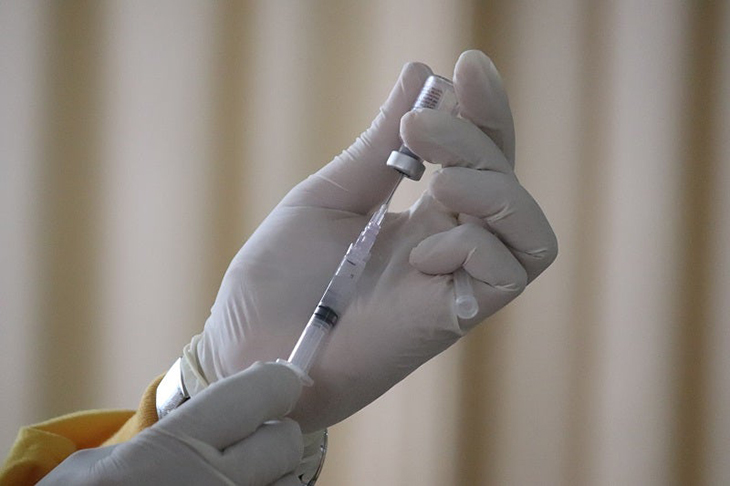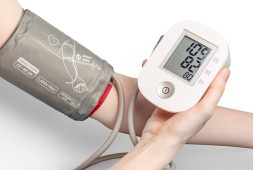FDA Gives Its Stamp Of Approval For Rykindo, An Injectable For People Suffering From Schizophrenia And Bipolar I

For those who suffer from certain mental illnesses, Rykindo is a new injectable form of risperidone. With just 1 shot taken every 2 weeks, they may find that managing their condition could be easier than taking a daily pill.
Those who take risperidone to treat schizophrenia or bipolar I have this new option if oral medications aren’t what they want or if they’re looking for an alternative in the long run. The U.S. Food and Drug Administration (FDA) has finally given its stamp of approval to Rykindo. This is an extended-release injectable version of risperidone and the approval was given last January 15, 2023. This was announced in a press release from Luye Pharma, the company behind the drug.
Rykindo is administered through intramuscular injection and this is done once every two weeks. The injectable delivers risperidone via long-acting and extended-release “microsphere” technology. These microspheres release the medication gradually and steadily so long as this has also been administered by a healthcare professional.
Risperidone Used as a Treatment for Schizophrenia and Bipolar I
Risperidone was first given the FDA approval in 1993 to treat symptoms of schizophrenia, as per StatPearls. As for the long-acting injectable form of risperidone, this was first approved by the FDA in 2003 and sold under the name Consta.
Risperidone was also later approved in 2004 as a treatment for the symptoms that come with bipolar disorder.
Rykindo Works With Relative Speed
When the first shot of risperidone is given, whether it’s Rykindo or Consta, the effects don’t happen immediately. Patients need to continue to take the oral form, even after the shot, up until a certain time. This is what the refer to as the “oral overlap.” For those on Rykindo, that time frame is seven days. For those taking Consta, the time frame is three weeks.
Generally, the shorter the overlap, the better it is because it means that they have a guaranteed consistent dosage sooner, said Travis Krew, MD, a psychiatrist at Cleveland Clinic in Ohio.
Long-Acting Injectables Haven’t been Beneficial for Those Suffering from Schizophrenia and Bipolar
Long-acting medications for schizophrenia and bipolar disorder aren’t new. In fact, there have been a few typical and atypical antipsychotics available already made as an injectable, said Dr. Krew.
These medications are given as injections every few weeks or months instead of daily. “This is particularly useful when we are looking to improve a patient’s adherence. It can be challenging to take medications every day, and many folks are on more than one medication,” shared Krew.
Making sure that patients get their medications regularly is especially crucial for those who have been diagnosed with schizophrenia, he said. “There’s a lot of great recent evidence that suggests that starting people early on these medications when their condition is first diagnosed can help with outcomes,” Krew said.
Those suffering from schizophrenia are most vulnerable in the early stages. This means that consistent medication for the first few months is a must because this can really help them do better in their day-to-day life, explained Krew.
Aside from the usual list of medications, schizophrenia treatment typically comes with other forms of therapy. Examples are cognitive behavioral therapy and psychosocial rehabilitation, as stated by the American Psychiatric Association guidelines.
How Effective is Rykindo Work and What Are the Side Effects
Clinical studies were made and the results were enlightening. According to what the researchers found, in 5 percent or more of trial participants with schizophrenia, the most common adverse effects were headache, parkinsonism (a general term used to describe brain conditions that cause slowed movements, tremors, and stiffness), dizziness, akathisia (unable to remain still), fatigue, constipation, dyspepsia (indigestion or upset stomach), sedation, weight increase, pain in the extremities, and dry mouth.
A comprehensive list of potential risks and side effects of risperidone injection is available at a site called MedlinePlus.
For those with bipolar disorder, the most common adverse effects were weight increase (around 5 percent of participants) and tremor and parkinsonism (10 percent or higher).
The drug comes with a warning for elderly patients diagnosed with dementia-related psychosis. There was a higher risk death for them if they are given antipsychotic drugs. Rykindo is not approved for use for those with dementia-related psychosis.
Availability for Rykindo
The FDA approval means that Rykindo can now be made available all throughout the U.S. However, Luye Pharma has not yet made an official statement regarding the release date. They also have to further share information regarding the cost.
Schizophrenia and Bipolar Disorder Often Untreated
So, what is schizophrenia? This is a mental disorder that can cause disruptions in thought processes and brings about delusions far removed from reality. According to the Treatment Advocacy Center (AOT), around 2.8 million adults living in the U.S. suffer from schizophrenia, or this is around 1.1 percent of the entire population.
Even though schizophrenia is not as common, in fact it’s considered rare, it remains to be one of the top 15 leading causes of disability all over the world. There has been an estimation and they found that the average life potential lost for those who suffer from it is 28.5 years, according to the National Institute of Mental Health. An estimated two in five people diagnosed with schizophrenia are left untreated in any year, as seen by AOT.
As for bipolar disorder, this can be divided into three classes: bipolar I, bipolar II, and cyclothymic disorder. Another term for this is manic-depressive disorder. The hallmark symptom reported is the dramatic shift in mood, energy, and activity levels. It’s so extreme that these disrupt day-to-day life and gets in the way of responsibilities, according to the institute.
It’s has been estimated that about 4.4 percent of U.S. adults experience bipolar disorder at one point or another and they also saw that more than half of those with this condition are often left untreated in all given years.



